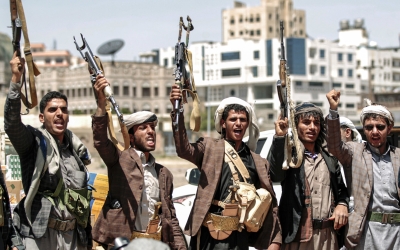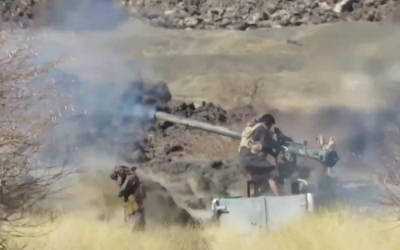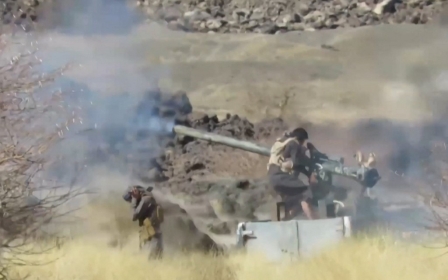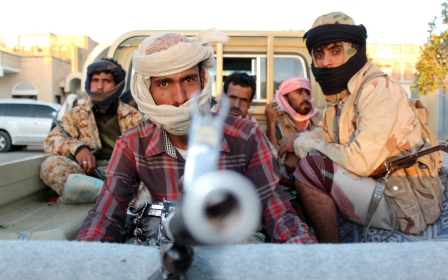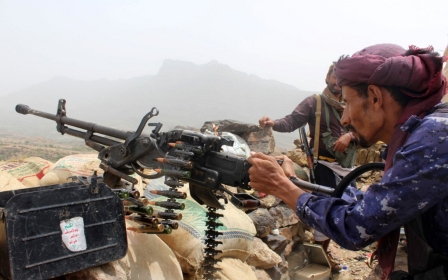Yemen stuck in 'indefinite state of war' with peace a long way off, new UN envoy warns
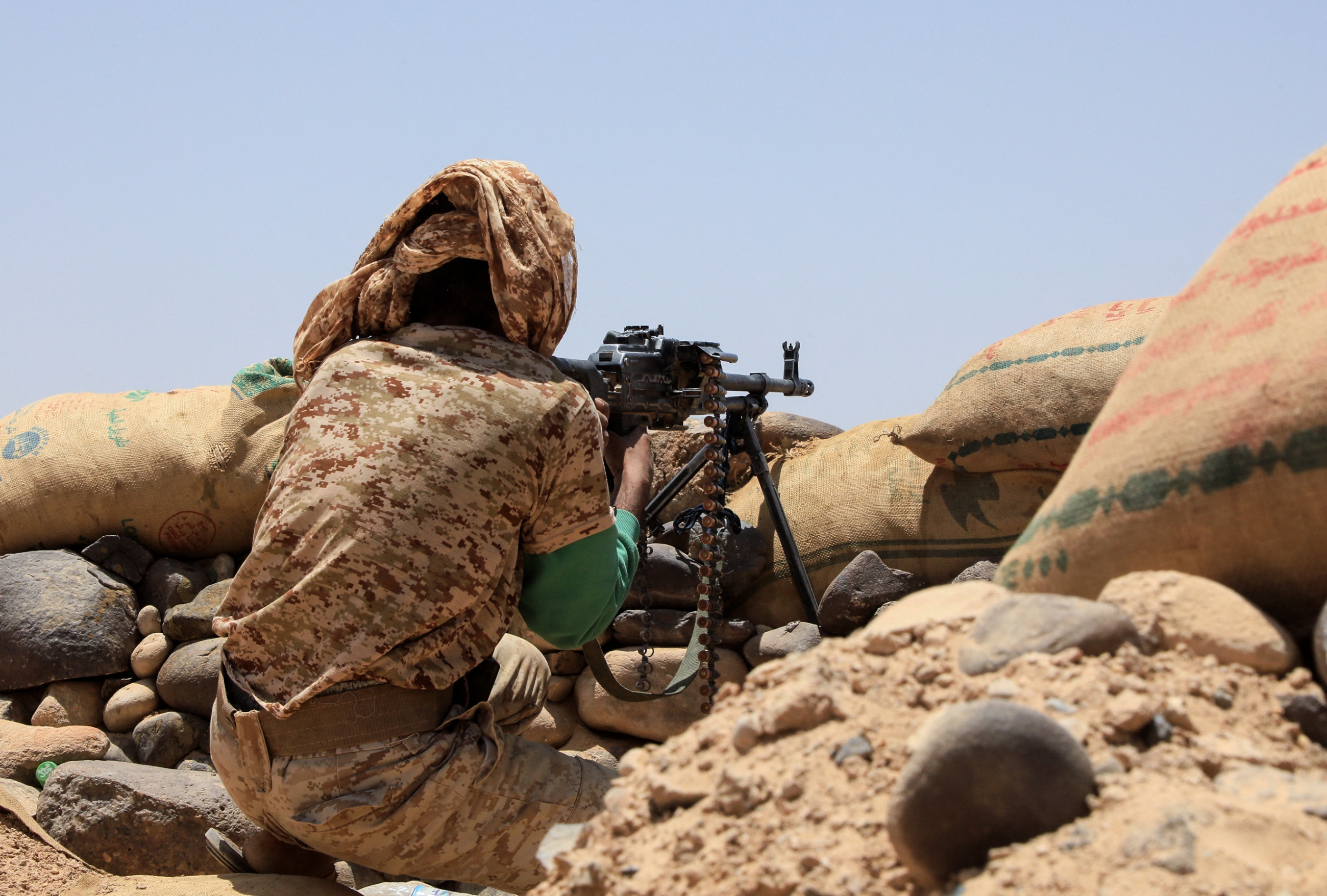
The new UN special envoy for Yemen said on Friday the country was "stuck in an indefinite state of war," and resuming negotiations to end the more than six-year conflict would not be easy.
Hans Grundberg, who assumed his duties as Special Envoy to Yemen this week, succeeded British diplomat Martin Griffiths, who led efforts to end the debilitating conflict between February 2018 and July 2021.
In his first address to the UN Security Council, Grundberg cautioned that there would be "no quick wins" and efforts to reach a peaceful settlement were "a long way off".
"The conflict parties have not discussed a comprehensive settlement since 2016," Grundberg said. "It is therefore long overdue for the conflict parties to engage in peaceful dialogue with one another under UN facilitation on the terms of an overarching settlement, in good faith and without preconditions."
'The Houthis believe they can take Marib militarily and perhaps pressure the government and Saudis into lifting restrictions unilaterally'
- Peter Salisbury, International Crisis Group
Asked how the new envoy might plan to work differently to his predecessor, a UN spokesperson told Middle East Eye that there were "divergent views about how to get there, but the best way forward must be guided by Yemenis' priorities, aspirations and views".
UN efforts to reach a peace agreement appeared to receive a boost earlier this year when the Biden administration announced it was ending offensive military support for the Saudi-led coalition fighting Houthi rebels.
The administration also said it would restore aid to parts of Yemen under control of the Iran-aligned rebels, and reversed the terrorist designation of the rebels imposed by the Trump administration.
While the decision paved the way for the US to restart aid efforts, some analysts said the move emboldened the Houthis, who control territory which is home to 80 percent of the country's population - including most cities, and the capital, Sanaa.
Others said that western leverage over the Houthis was limited, with one western diplomat telling MEE on condition of anonymity: "There is really no incentive for the Houthis to stop. They are winning on the ground."
'Houthis believe they can take Marib'
In March, Saudi Arabia introduced a peace proposal along the lines of the UN plan which called for an immediate ceasefire and the subsequent lifting of Riyadh's blockade of the country.
Peter Salisbury, a senior analyst with the International Crisis Group, told MEE the plan "was more a question of positioning than anything new".
"The UN initiative... was troubled from the start and negotiations were deadlocked by the end of 2020. Neither the Houthis nor the government sees it as being in their interests," Salisbury said.
Complicating matters, the fighting continues to flare, with the latest focus being the northern city of Marib.
Sitting some 120km east of Sanaa, Marib is the last major urban centre controlled by the internationally recognised government and is home to much of the country's oil and gas reserves.
"The Houthis believe they can take Marib militarily and perhaps pressure the government and Saudis into lifting restrictions unilaterally," Salisbury said.
The western official told MEE it was their assessment the Houthis would not negotiate until they took Marib. "It's a strategic objective for them," the official said. But the Saudis and their Yemeni allies are also determined to fight.
"None of these factions sees it in their interests to come to the table. They don't want to cede anything to the Houthis," Daniel Egel, an analyst with Rand Corporation, told Middle East Eye.
Another western official who spoke with MEE on condition of anonymity said Marib was unlikely to fall to the Houthis in the near future, adding that Saudi air support had been critical in beating back the rebels.
"Riyadh is absolutely lockstep in the support of Marib. This is not ending anytime soon."
Proxy war
Saudi Arabia entered the conflict in March 2015 in an attempt to restore the government of President Abd Rabbuh Mansour Hadi after the Houthis seized the capital, Sanaa, and forced him to flee.
Since then, the kingdom has carried out more than 20,000 air raids on the impoverished country, striking non-military sites including schools, factories and hospitals, according to the Yemen Data Project.
The Houthis, who are members of the Zaidi Shia minority, have in turn fired ballistic missiles into the kingdom, with rockets reaching as far as the capital, Riyadh.
Last year, Tehran sent Hassan Irlou, a member of Iran's Revolutionary Guard Corps, to serve as Iran's ambassador to the Houthi government in Sanaa - a position some western officials say indicates Tehran's growing sway over the group.
"He is very well placed to provide guidance to the Houthis, and his remit is not constrained strictly to military matters," the western official told MEE.
"This is long-term advice and it is directional."
As the proxy conflict drags on, it has inflicted a bitter human toll, with at least four million displaced by fighting and at least 233,000 killed.
The UN has said around 80 percent of the population are in need of humanitarian aid, in what has been described as the world's worst humanitarian crisis.
Egel said the humanitarian crisis was "acute," and, without a political solution, "aid will remain a band-aid".
Middle East Eye propose une couverture et une analyse indépendantes et incomparables du Moyen-Orient, de l’Afrique du Nord et d’autres régions du monde. Pour en savoir plus sur la reprise de ce contenu et les frais qui s’appliquent, veuillez remplir ce formulaire [en anglais]. Pour en savoir plus sur MEE, cliquez ici [en anglais].


